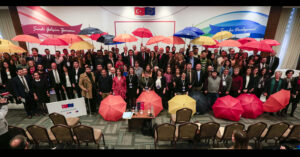
Technical Assistance for Implementation of Civil Society Dialogue and Civil Society Support Programmes (TR2015/DG/01/A5-01/001)
The overall aim of the project is to increase bilateral exchanges and cooperation between CSOs in Turkey and the EU at local, regional and national levels, to promote awareness raising initiatives on importance and benefits of membership of Turkey to the EU within Turkey and EU and on

Technical Assistance for Border Enforcement of Intellectual Property Rights (IPR) for Modernization of Turkish Customs Administration VIII
It is essential to modernize customs legislation and practices in line with the EU standards for proper and effective implementation of the Union Customs Code. In this context, the purpose of the project was to improve the administrative capacity of the Turkish Customs Administration, raise awareness and increase

Monitoring Human Rights Situation and Advocating for Compliance with International Human Rights Framework
The main objective of this service contract is to strengthen Turkish civil society organisations’ role in the promotion and protection of human rights through expanded civil society monitoring and advocacy at various levels. The action will provide support to civil society organisations in order to document human rights

Support to the Development of the Penitentiary and Probation Systems in Georgia
Countries are looking for an effective and fair way to penalize criminals and prevent recidivism significantly. Within this scope, the overall aim was to reduce recidivism in Georgia and to develop modern and efficient criminal and probation systems to ensure public safety that protects the human rights of

Technical Assistance to Implementation of Civil Society Support Programme
The overall objective of the project is to support the development of civil society through more active democratic participation in policy and decision making processes and by promoting a culture of fundamental rights and dialogue.

Technical Assistance for Promoting Registered Employment
Unregistered employment remains one of the critical concerns and significant challenges of the Turkish labour market. Even though recent years have seen a downward trend in unregistered employment, a substantial portion of Turkey’s workforce is still employed without being registered with the social security system. In this regard,

